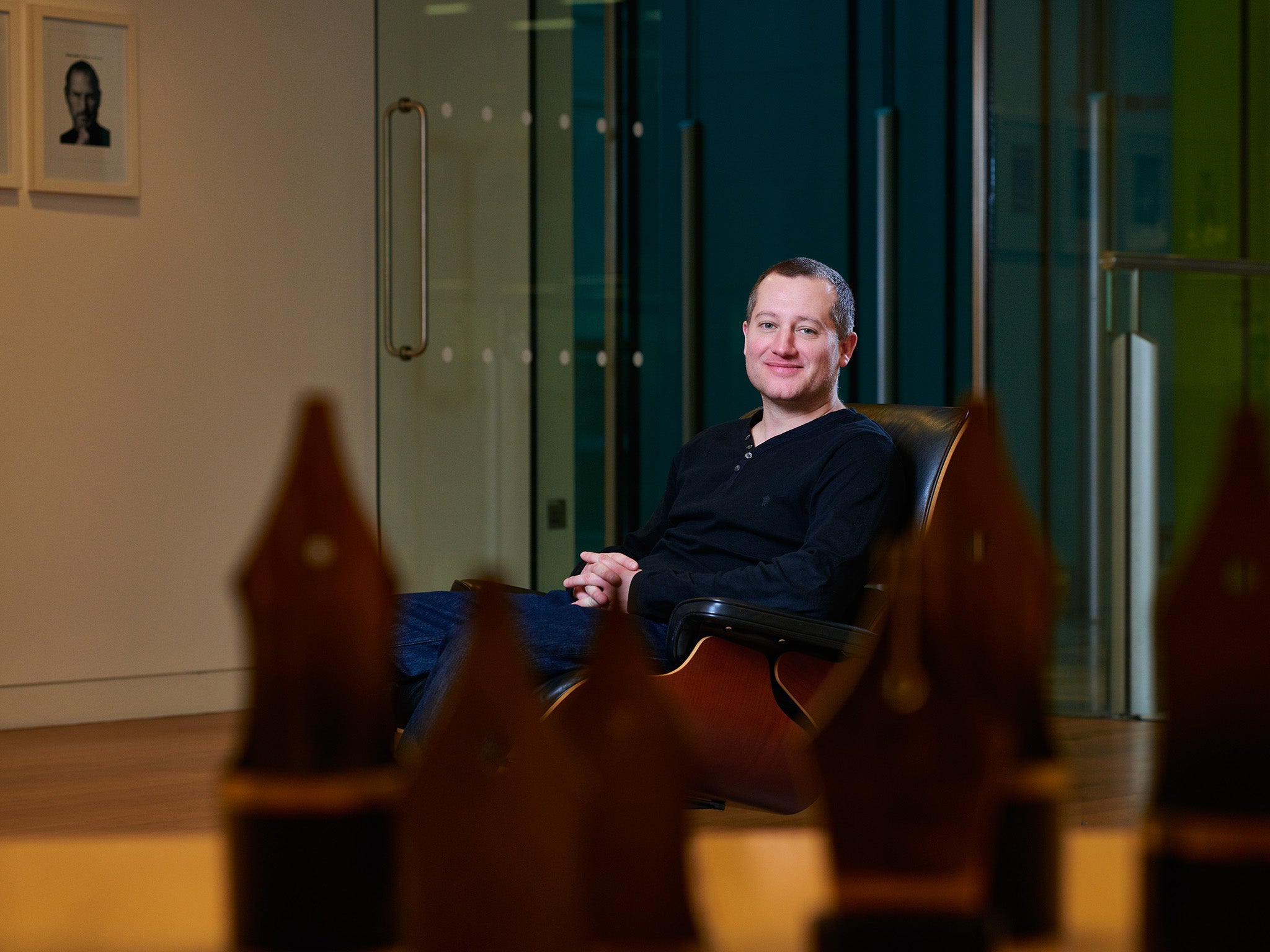Author Jonathan Trigell interview: Tackling the greatest story ever told
In Trigell’s latest book, he tells of the life of Christ as told by the apostles who spread the word in the years following his crucifixion

Jonathan Trigell is not a writer who likes to repeat himself. His prize-winning debut Boy A turned elements of the James Bulger murder into an unsettling portrait of modern childhood. Cham was part recreation of Lord Byron’s exploits in Europe, part satire of the tight young things clogging up Chamonix, the ski resort that 41-year-old Trigell calls home. His third novel, Genus, offered a dystopian vision of London with a dead ringer for Toulouse Lautrec living in King’s Cross.
“It has never really been a deliberate decision to write [such very] different books. It has just been what interested me enough to start the next one. I can see why historical novelists write many times in the same period. But there is a danger of pigeon-holing yourself.”
Trigell’s latest, The Tongues of Men and Angels, is the closest he has come to his own historical novel, but it may also be his boldest departure yet: a life of Christ as told by the apostles who spread the word in the years following his crucifixion.
We discuss the book on a chilly day in London that, Trigell says, is not a patch on the “Snowpocalypse” currently hitting his alpine home. Cheerful and erudite, he admits to some apprehension about approaching a subject at once so familiar and so prone to inspire controversy.
“It was intimidating,” Trigell says. “Even as a non-believer you get tinges of fear when you examine stories that people believe so deeply and try to get to the heart of what really happened.”
The novel originated two decades ago when Trigell was studying English at Manchester University. Impetus only returned when his editor asked what he had planned for the second of a two-novel deal (Genus being book one). “Second book? I’ve only just finished the first! I had this idea at the back of my mind for almost 20 years. I thought, If not now, when?”

The ease of the decision was in strict contrast to the rigours of research which proved addictive but potentially limitless. “I read more books for this novel than for my others combined and probably my undergraduate degree. I am still reading now. Once you get that enveloped it is hard to stop.”
Trigell stresses that, although the novel re-imagines Jesus’s final days in often exacting close-up, the focus is not the Messiah, but Paul, the persecutor turned apostle after his visionary conversion on the road to Damascus. “Even when he converted to Christianity Paul was full of opposites. The fascinating thing, almost uniquely for such an early figure in the movement, is that we have his letters. His words can be quite startling if you read them closely. If you hear selections read in church he sounds like the most loving and generous man on earth. When you read his letters, he is very easily angered. He takes extremely strongly against anyone who doubts him. I think it was A N Wilson who said Paul has views that would make a Taliban blush.”
It seems almost inevitable that Trigell’s greatest story ever told will be argued over. Although not religious himself, save for a teenage flirtation with “transcendental pantheism”, he denies that he has any theological axe to grind. “If I wanted to write a more outrageous version of Paul it would be very easy to do. There were contemporary accusations that he was a scoundrel, a crook and a confidence trickster.”
Instead, he sees the novel as a committed attempt to compare the harsh reality of Jesus’s life with the embroidered versions that spread following his death. This sometimes unstable collision of fact and fiction creates a strange turbulence – between the sceptical narrator’s pursuit of unvarnished truth and Trigell’s own need to fabricate. This is a story that invents in order to see through invention. “There is a tension,” he admits. “On the one hand, I was saying as truthfully as possible how I think events happened. On the other hand, I was making stuff up. Our whole society has been shaped around these stories. A lot of them have layers that have been added through an extended game of Chinese whispers.”

Trigell gives the example of Jesus and the woman taken in adultery from the Gospel of St John. “That almost certainly didn’t happen, but it’s one of the things we know best about Jesus. It doesn’t require any great miracles. A non-believer can still believe that Jesus talked soft-sense to this angry mob saying, ‘Let he who is without sin cast the first stone’. But it only appears in John, which is the last Gospel written, and it isn’t even in the earliest versions.”
Muddying the waters is Trigell himself, who plays fast and loose with events that scholars have debated for centuries. So we have a gladiatorial battle between Peter and Paul, under arrest and awaiting martyrdom in Rome, and, more provocatively, hints of homo-eroticism between Jesus and the so-called “beloved disciple”, also from St John. “If one came to that Gospel with no knowledge of Jesus and a completely open mind, one would probably be forced to conclude that Jesus was attracted to other men. My personal view is that Jesus was celibate.”
Trigell sounds braced for possible controversy and just a little anxious. “I was quite unnerved by the Pope’s recent comments after the murder of the Charlie Hebdo cartoonists. He more or less said if someone insults your mother then you are entitled to punch them in the nose, and that to insult your religion was worse. What happened to turn the other cheek?”
Given that Trigell lives long-term in France, I ask about the mood following the Charlie Hebdo atrocity. “I think the reaction so far has been very mature and responsible. The marches were unity marches. One waits to see what happens. There is always a tendency for governments to put in draconian laws.”

Did Trigell have any inkling that something like this was possible? “I didn’t see it coming. I think a lot of people in France saw something happening. The Charlie Hebdo staff had police protection. One of the cartoonists, Charb, was quoted as saying ‘I would rather live life knowing that I might die than bowing on my knees’. But I think it shocked France to a degree that is very difficult [for outsiders] to understand. France prizes its freedom of speech perhaps second only to America. Its secularism it prizes second to nowhere.”
For his own part, Trigell did re-tweet the Charlie Hebdo cover depicting the Prophet. “Not to be offensive, but because freedom of speech is the fundamental right. All other rights are built upon it. If we don’t have the ability to mock priests and politicians, it would be a dictatorship.”
Writing, Trigell argues, is central to this liberty, even if he finds it painstaking. Already at work on a new project, which he describes as “red-neck noir”, he is readying himself for more research and more years fretting over his prose.
“I am not one of those novelists who finds writing easy. I get the impression that some people don’t have to think about it very much. Maybe this is just my own jealousy, but I think they are doing it wrong. [Writing] should be hard. The reader should be entertained, but they should definitely be made to think. However minutely, however imperceptibly, the world should be slightly different after finishing a good novel.”
Join our commenting forum
Join thought-provoking conversations, follow other Independent readers and see their replies
Comments
Bookmark popover
Removed from bookmarks